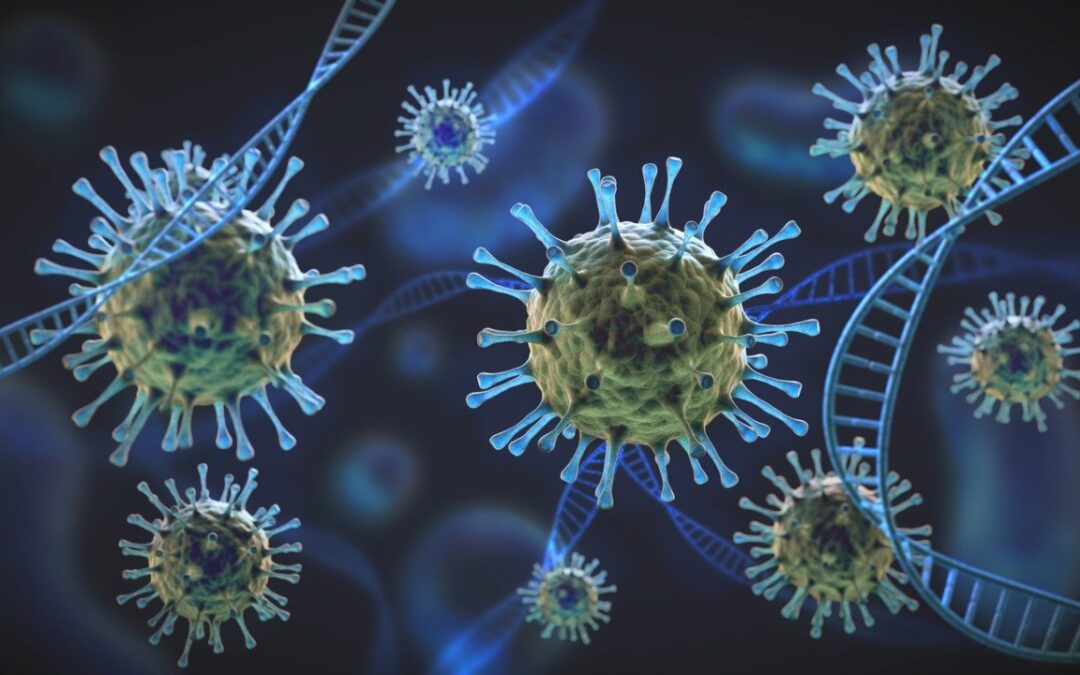Mutation in viruses is common and changes in its nature are of great interest to scientists. In various studies, we discover that often the mutation slows down the effects of the virus or makes it even more threatening. Since last year, the world has witnessed evolution in the SARS-CoV-2 virus, multiple variants dominated different countries. After the devastating second wave of Covid-19 in India, scientists have detected one of the B.1.617.2 (Delta variant) which has categorised as a variant of concern (VOC) as it is observed as highly transmissible than contemporary lineages.
First detected in October 2020 in India, Delta variant is believed to be primarily responsible for the second wave in the country. Not only India, the U.K, Brazil, Australia and other countries have witnessed the sudden surge in their cases, infecting and killing millions of people in the past months.
What is Delta Plus Variant?
As we know Delta variant has rapidly spread across all the nations, replacing the previously prevalent variants becoming the dominant one. However, the new Delta Plus variant (AV.1) is characterized by its high rate of infectivity, elevated transmissibility, resistance to vaccines and response to treatment. According to scientists, Delta Plus has an extra mutation “K417N” in the spike protein enhancing attachment of the virus to the infected cells. There is a possibility that these variants increase the chances of immune escape that can somehow influence the vaccine effectiveness. While studies are still going on, it is believed that if the new Delta Plus variant demonstrates increased transmissibility then it can trigger the third wave even sooner than predicted.
Will the Delta Plus variant dominate the inevitable third wave in India?
Being a sub-lineage of Delta variant, the prevalence of this variant is comparatively low in the country. Until now, we have only suggested data indicating the nature of the variant but there is no certainty that it can instigate a third wave in the country. Following the previous pattern it is said that Delta variant was found in low level before reaching a devastating level in two months causing havoc in the second wave. Recently, states like Maharashtra and Kerala have found rising cases in Delta plus variants that could possibly trigger the third wave, if precautionary measures are not taken seriously. Several factors, such as mass vaccination drives, community’s response, herd immunity, and stringent Covid measures are reflecting the signs that the third wave may not turn out to be severe. If the large population gets infected in the second wave, gets vaccinated, and develops antibodies then people may not develop a serious illness or the fatality rate could be less than the second wave.
Time to break the transmission Cycle
What we have learned from the second wave is that the Delta variant has developed a strong attachment with the human airway cells. As a result, an infected person has a heavy load of virus that may transmit more virus to the other persons. One of the affected testing responses CT Value (cycle threshold) – the number of amplification cycles needed for the virus to be detected, is very low during the second wave indicating the behaviour of high transmissibility of the Delta variant. Similarly, the sublineage Delta plus follows the similar nature of transmissibility and its affinity to the mucosal lining in the lungs. In such critical times, when a virus is changing its response to the human cells, it is necessary to emphasize on Covid appropriate behaviour. The government is strictly instructing citizens to follow double masking in public places, avoid crowded places, regular hand washing, and maintain better ventilation in indoor spaces.
The regions reporting Delta plus variant cases, need to be followed with better tracing, testing, and isolation to control the spread of infection. The chain of transmission can be broken through the compliance of strict precautionary measures including vaccination, wearing masks, sanitization, and social distancing.
Conclusion
According to experts, there is no need to panic about the variant as vaccines can suppress the severity of the disease. All we need is to stay alert and not to take these measures lightly with the unlocking of the country.



Recent Comments